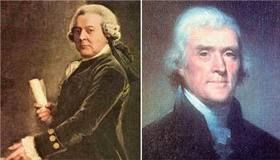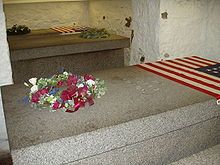The Tour de France 2012, the world’s premier cycling event kicked off last Saturday with the Prologue in Liège, Belgium and will conclude on July 22 with the traditional ride into Paris and laps up and down the Champs-Élysées. Over the next 22 days the race will take its course briefly along the Northwestern coast of France through Boulogne-sur-Mer, Abbeville and into Rouen then into the mountains of the Jura, Swiss Alps and the Pyrenees.
We will be Live Blogging Le Tour 2012 every morning at The Stars Hollow Gazette starting at 7:30 AM EDT. Come join us for a morning chat, cheer the riders and watch some of the most beautiful and historic countryside in Europe.
Stage 4 starts in Abbeville located on the Somme River, 20 km (12 mi) from its modern mouth in the English Channel, and 45 km (28 mi) northwest of Amiens
History
Abbeville first appears in history during the ninth century. At that time belonging to the abbey of Saint-Riquier, it was afterwards governed by the Counts of Ponthieu. Together with that county, it came into the possession of the Alençon and other French families, and afterwards into that of the House of Castile, from whom by marriage it fell in 1272 to King Edward I of England. French and English were its masters by turns till 1435 when, by the treaty of Arras, it was ceded to the Duke of Burgundy. In 1477 it was annexed by King Louis XI of France, and was held by two illegitimate branches of the royal family in the 16th and 17th centuries, being in 1696 reunited to the crown. In 1514, the town saw the marriage of Louis XII of France to Mary Tudor, the daughter of Henry VII of England.
Abbeville was fairly important in the 18th century, when the Van Robais Royal Manufacture (one of the first major factories in France) brought great prosperity (but some class controversy) to the town. Voltaire, among others, wrote about it. He also wrote about a major incident of intolerance in which a young impoverished lord, the Chevalier de la Barre, was executed there for impiety (supposedly because he did not salute a procession for Corpus Christi, though the story is far more complex than that and revolves around a mutilated cross.)
Abbeville was the birthplace of Rear Admiral Amédée Courbet (1827-85), whose victories on land and at sea made him a national hero during the Sino-French War (August 1884 to April 1885). Courbet died in June 1885, shortly after the end of the war, at Makung in the Pescadores Islands, and his body was brought back to France and buried in Abbeville on 1 September 1885 after a state funeral at Les Invalides a few days earlier. Abbeville’s old Haymarket Square (Place du Marché-au-Blé) was renamed Place de l’Amiral Courbet in July 1885, shortly after the news of Courbet’s death reached France, and an extravagant baroque statue of Courbet was erected in the middle of the square at the end of the nineteenth century. The statue was damaged in a devastating German
The route follow through the villages hugging the coastline until it takes a left turn inland at Fécamp home of the Fécamp Abbey where Bénédictine, a herbal liqueur beverage, was developed by Alexandre Le Grand in the 19th century. It is claimed that at the Benedictine Abbey of Fécamp in Normandy, monks had developed a medicinal aromatic herbal beverage which was produced until the abbey’s devastation during the French Revolution, but in fact Alexandre Le Grand invented the recipe himself, helped by a local chemist, and he told this story to connect the liqueur with the city history and to sell his liqueur the best as possible. And so goes the way of a myth.
 Then it is on the the finish in the historic capital city of Normandy, Rouen, located on the river Seine. Once one of the largest and most prosperous cities of medieval Europe], it was the seat of the Exchequer of Normandy in the Middle Ages. It was one of the capitals of the Anglo-Norman dynasties, which ruled both England and large parts of modern France from the 11th to the 15th centuries. It was here that Joan of Arc was executed in 1431. People from Rouen are called Rouennais.
Then it is on the the finish in the historic capital city of Normandy, Rouen, located on the river Seine. Once one of the largest and most prosperous cities of medieval Europe], it was the seat of the Exchequer of Normandy in the Middle Ages. It was one of the capitals of the Anglo-Norman dynasties, which ruled both England and large parts of modern France from the 11th to the 15th centuries. It was here that Joan of Arc was executed in 1431. People from Rouen are called Rouennais.
Main Sights
Rouen is known for its Notre Dame cathedral, with its Tour de Beurre (butter tower). The cathedral was the subject of a series of paintings by Claude Monet, some of which are exhibited in the Musée d’Orsay in Paris. It contains a tomb of Richard the Lionheart which contained his heart. His bowels were probably buried within the church of the Chateau of Châlus-Chabrol in the Limousin. It was from the walls of the Chateau of Châlus-Chabrol that the crossbow bolt was fired, which led to his death once the wound became septic. His corporeal remains were buried next to his father at Fontevraud Abbey near Chinon and Saumur, France. Richard’s effigy is on top of the tomb, and his name is inscribed in Latin on the side.
The Cathedral also contains the tomb of Rollo (Hrólfr, Rou(f) or Robert), one of Richard’s ancestors, the founder and first ruler of the Viking principality in what soon became known as Normandy.
The cathedral contained the black marble tomb of John Plantagenet or John Lancaster, Duke of Bedford, who is considered to be Joan of Arc’s murderer. He became a canon priest of the cathedral after her death. His original tomb was destroyed by the calvinists in the 16th century but there remains a commemorative plaque .
The Gros Horloge is an astronomical clock dating back to the 16th century, though the movement is considerably older (1389). It is located in the Gros Horloge street.
Other famous structures include the Gothic Church of St Maclou (15th century); the Tour Jeanne d’Arc, where Joan of Arc was brought in 1431 to be threatened with torture (contrary to popular belief, she was not imprisoned there); the Church of Saint Ouen (12th-15th century); the Palais de Justice, which was once the seat of the Parlement (French court of law) of Normandy and the Museum of Fine Arts and Ceramics which contains a splendid collection of faïence and porcelain for which Rouen was renowned during the 16th to 18th centuries.
Rouen is noted for its surviving half-timbered buildings.
There are many museums in Rouen: Musée des Beaux-Arts de Rouen, an art museum with pictures of well-known painters such as Claude Monet and Géricault; Musée maritime fluvial et portuaire, a museum on the history of the port of Rouen and navigation; Musée des antiquités, an art and history museum with antic or gothic works; Musée de la céramique, Musée Le Secq des Tournelles…
The Jardin des Plantes de Rouen is a notable botanical garden dating to 1840 in its present form. It was previously owned by Scottish banker John Law and was the site of several historic balloon ascents.
In the centre of the Place du Vieux Marché (the site of Joan Of Arc’s pyre) is the modern church of Saint Joan of Arc. This is a large, modern structure which dominates the square. The form of the building represents an upturned viking boat and fish shape.
Rouen was also home to the French Grand Prix, hosting the race at the nearby Rouen-Les-Essarts track sporadically between 1952 and 1968. There was a campaign in 1999 by Rouen authorities to obliterate remainders of Rouen’s racing past. Today, little remains beyond the public roads that formed the circuit.


 I’ve always identified myself as a writer, even when it was poetry for machines and deadline dreck for newsletters, pamphlets, and flyers.
I’ve always identified myself as a writer, even when it was poetry for machines and deadline dreck for newsletters, pamphlets, and flyers. On this day in 1826,
On this day in 1826, 

 It’s an interesting coincidence that exactly 50 years after The Declaration, Jefferson and Adams died within hours of each other. Ironically Adam’s last words were- “Jefferson still survives.” In fact Jefferson preceded Adams which could have caused some embarrassment provided you believe in an afterlife and that Jefferson and Adams could have ended up in the same place.
It’s an interesting coincidence that exactly 50 years after The Declaration, Jefferson and Adams died within hours of each other. Ironically Adam’s last words were- “Jefferson still survives.” In fact Jefferson preceded Adams which could have caused some embarrassment provided you believe in an afterlife and that Jefferson and Adams could have ended up in the same place.
